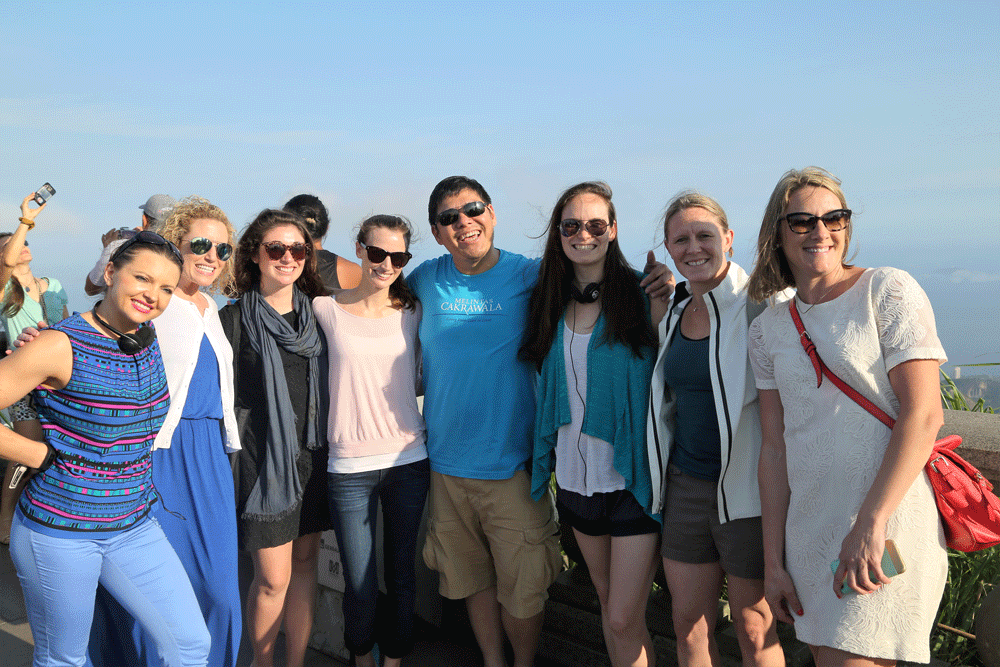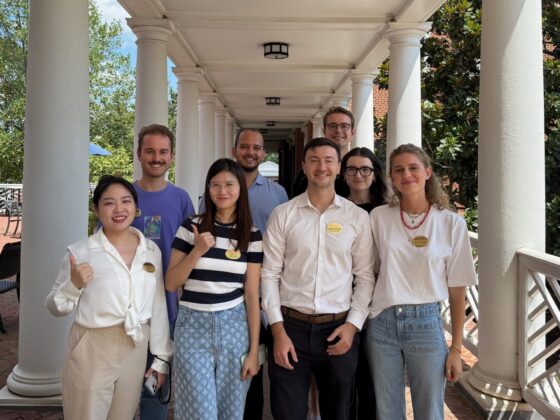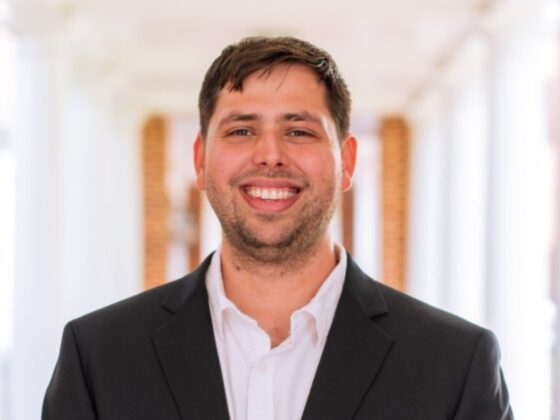By Jessica Hirsch
This past December, students from Darden’s Global MBA for Executives (GEMBA) Class of 2017 completed their first international residency, visiting Sao Paulo and Rio de Janeiro to learn how business is conducted in Brazil and meet with key multinational and local companies.
The GEMBA class contains experienced managers from a variety of industries and backgrounds, including Darden’s own Director of Executive Education, Casey Floyd. For many, the GEMBA residencies provide a unique opportunity to learn about international business and gain hands-on experience.
“In my role at Darden and in any role I foresee in the future, there will be an international aspect,” Floyd said. “It’s one thing to study a global economy and another thing to be immersed in it. The residencies help us understand how business operates in different markets.”
In between residencies, one third of the GEMBA curriculum is delivered via distance learning.
“Distance learning provides an amazing replication of how the classroom functions,” Floyd said. “It is highly interactive and does a good job translating a classroom setting to an online mode of delivery.”
In addition to the courses conducted in Brazil, students enjoyed the opportunity to participate in Global Leadership Exploration engagements, non-classroom activities which facilitate learning about a new country as well as its culture and institutions. As part of this experience, students were able to visit companies such as aircraft manufacturer Embraer, tour local favelas, and meet with the Olympic organizing committee.
“One of the biggest things I took away from this experience was the power of networking,” Floyd said. “Brazil is a very relationship-based society. I was very fortunate to experience a real Brazilian business dinner with the company head of Nestle-Purina. It was a true testament to doing business in Brazil.”
Students also have the chance to learn about Brazilian business from a variety of senior executives who visit GEMBA classes or speak with students on site visits.
“All of the speakers were very open about the challenges facing the Brazilian economy,” Floyd said. “They were also very optimistic about the future of Brazil.”
Although many GEMBA students are busy with full-time work and family obligations, they still find time to bond as a class during their international residencies.
“The most rewarding part of the GEMBA program is the relationships we build with faculty and classmates,” Floyd said. “When we come together in person, everyone is so passionate to build on our connections and utilize our different experiences. For many, this is their first time in a new country, and residencies allow us to explore new places together.”
Floyd hopes to incorporate her takeaways from the GEMBA program into future endeavors.
“It’s important to be able to apply this business mindset to executive education, especially to evaluate the different needs and skillsets of the market,” Floyd said. “I hope to build on each residency going forward and consider how to apply the lessons of each location in my way of thinking. It’s been eye-opening to think about business interactions from the other side of the table, to really remove the U.S. lens and add perspective.”





